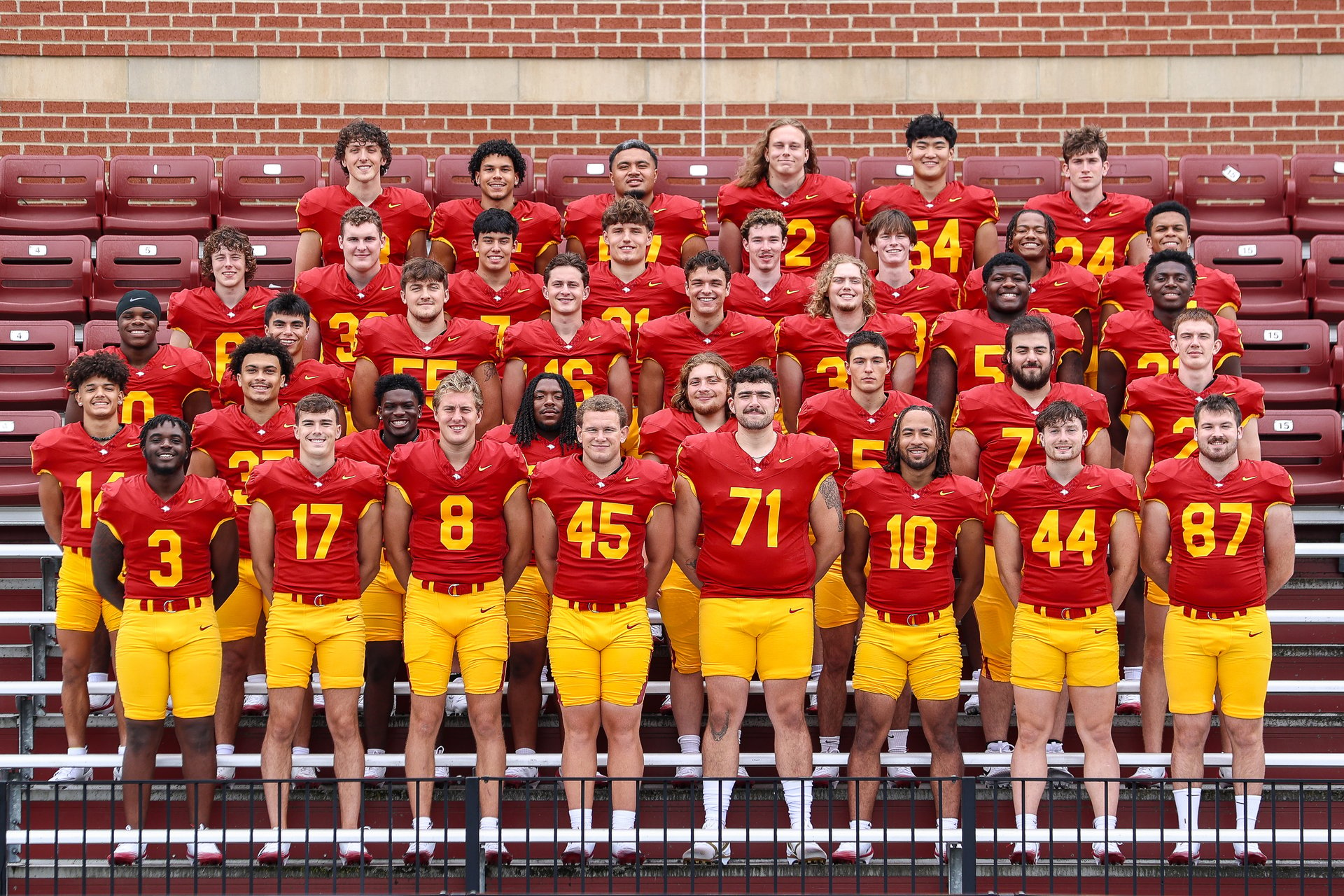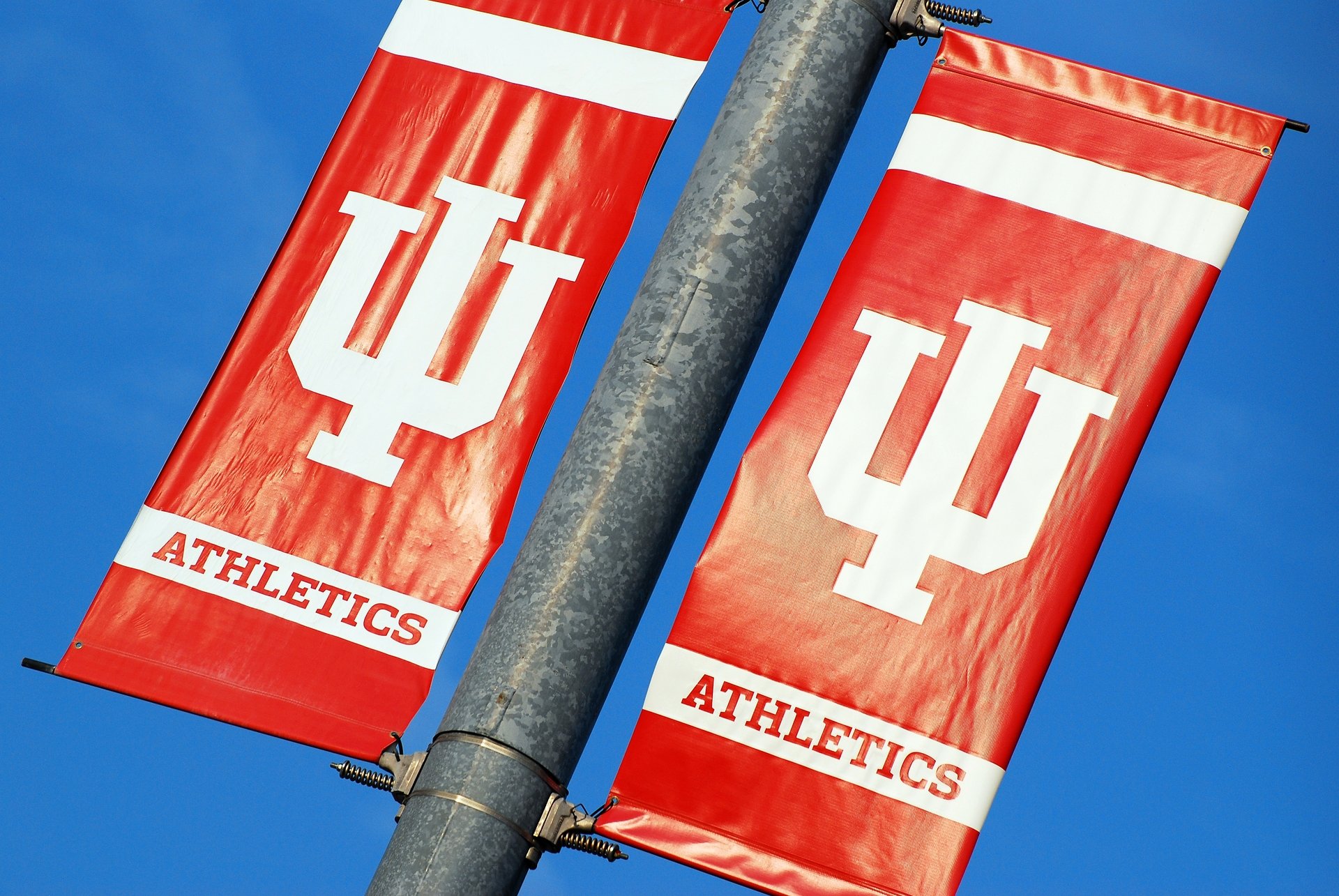Good morning! Did you all enjoy Week 2? I thought it was a delight. We had a thoroughly entertaining Texas/LSU game, some late-night weirdness out West, the Troops setting off another existential Michigan fan crisis, and my Ohio State Buckeyes obliterating a solid Cincinnati team.
I love blowouts like that. Obviously, I love them because being an Ohio State fan is kind of an exhausting experience, where your favorite team usually wins at least 80% of the time, but you have to read either your own fans complaining about how it wasn’t good enough, or college football State Television commentators ripping the performance to shreds out of self interest. If you win by 40, well, those tweets aren’t so insufferable.
But it also gives me time to think. And over these last few days, I’ve been thinking a lot about Jemele Hill’s recent article for The Atlantic. Discussing this article in 250 character busts on Twitter would be a disaster. But maybe it might be a good conversation to have here.
Let’s talk about HBCUs for a second
When we talk about resources in college football, it’s easy to talk about inequalities. The biggest programs, your elite Power Five type schools, these are the ones with athletic budgets stretching $100 million. The ones who can spend $3 million on a head coach, a million on an assistant, and hundreds of thousands on a small army of analysts. The schools in the G5, even the ones with established fanbases and successful programs, do not have anywhere close to that kind of money or resources.
Whatever the resource gap is between the LSUs and the Louisiana Techs is, that gap becomes even more stark when we start talking about HBCUs.
The homecoming bodybag FCS opponent? Often an HBCU. One of the 16 seeds playing in an NCAA Tournament play-in game? Almost certainly an HBCU. From the budget table to KenPom to APR rankings and more, when there is a bottom in Division 1, chances are, an HBCU is in the conversation.
That’s not entirely their fault, of course. These schools, your Southerns, your Florida A&Ms, your Coppin States, aren’t just substantially under resourced in athletics, they’re under resourced, period. And have been for decades. From Hill:
Black athletes have attracted money and attention to the predominantly white universities that showcase them. Meanwhile, black colleges are struggling. Alabama’s athletic department generated $174 million in the 2016–17 school year, whereas the HBCU that generated the most money from athletics that year, Prairie View A&M, brought in less than $18 million. Beyond sports, the average HBCU endowment is only one-eighth that of the average predominantly white school; taken together, all of the HBCU endowments combined make up less than a tenth of Harvard’s.
This becomes important for folks beyond budget nerds for two reasons. For one, per Hill, HBCUs are disproportionately represented among America’s African-American professional class.
Because black colleges play an important role in the creation and propagation of a black professional class. Despite constituting only 3 percent of four-year colleges in the country, HBCUs have produced 80 percent of the black judges, 50 percent of the black lawyers, 50 percent of the black doctors, 40 percent of the black engineers, 40 percent of the black members of Congress, and 13 percent of the black CEOs in America today.
You know who isn’t producing tons of black judges, black lawyers, black doctors or white-collar black professionals? That’d be the rest of the Power Five:
Almost all of these schools are majority white—in fact, black men make up only 2.4 percent of the total undergraduate population of the 65 schools in the so-called Power Five athletic conferences. Yet black men make up 55 percent of the football players in those conferences, and 56 percent of basketball players.
If I'm understanding Hill’s argument here, an elite black athlete creates wealth and prestige for an already wealthy institution by playing football or basketball. Why create that wealth for an institution that isn’t helping black students when you could enroll at an HBCU instead? Even a small number of blue-chip recruits opting for a Howard, or an NC A&T, Hill argues, could create a significant impact that could help change how those schools are perceived, and could help them raise money.
Regardless of how you feel about amateurism, Hill personally, the whole system…I encourage you to read the article. It isn’t super long, and it will make you think.
I don’t want this newsletter to really be about SHOULD BLACK KIDS DITCH OHIO STATE TO GO TO GRAMBLING?!? because quite frankly, there are too many folks who look like me that are a little too comfortable saying exactly what they think black folks ought to be doing. Picking where you go to college is an immensely personal choice with a lot of variables, and I don’t really feel right pontificating on what each kid should absolutely do.
But here are a few thoughts I’ve been mulling over in between blowouts over the weekend:
1) I really do think that improvements in television broadcasting and social media have flattened the college athletics world enough that an athlete could build a brand just about anywhere. You don’t need a P5 scholarship to build a following on Instagram or Twitter, and almost every college football game, even at the FCS level, is on a reputable streaming system. I also think it’s increasingly true that if you are good enough, there’s a pathway to the pros from almost anywhere. We just saw a dude from Murray State get drafted #2 overall in the NBA Draft. HBCU players get picked in the NFL Draft every year. If you are good enough, in the year of our Lord 2019, there’s an opportunity to crack a pro roster out there.
2) I do think it’s unquestionably true that going to a school with more resources can make it more likely that you will become good enough. There are good coaches at HBCUs, but the quality of competition, the nutrition, the facilities, the small army of analysts, the tutors, everything…there’s just more of those things are places with more money. That doesn’t mean that taking the richest school is always the best option, or that those things matter equally to every kid. But I think it’s worth pointing out, if you’re encouraging kids to forgo that.
3) ESPN’s Bomani Jones pointed this out in this excellent clip…but are we so certain that elite athletes will automatically translate to economic or cultural gains for HBCUS?
Back in the 1950s and 1960s, scores of elite black athletes played at HBCUs. Based on the talent they produced for the NFL and NBA, it’s possible to argue that some of those teams were the most talented in the country. And it’s not like that talent led to economic boom times for the schools then. Of course, HBCUs were recruiting elite black athletes because those kids weren’t allowed to go to SEC or ACC schools (among others), college athletics were not as big a business, and institutional racism was even more flagrant back then.
But Steve McNair finished third in the Heisman vote in 1994, playing at D1-AA Alcorn State. Did that provide lasting economic change to the school? Have NFL draft picks or upsets over FBS programs brought that change? What level of athletic success would be required to bring it about?
Economic growth from a single great sports team is a fickle thing even for institutions that aren’t facing political, racial, economic and a slew of other cards stacked against them. It’s possible that a Fab Five at oh, Texas Southern, could help change the paradigm for the school. I think it’s also possible that instead, it’d just inspire every NCAA suit from Indianapolis to start sniffing around and find an excuse to levy sanctions. The status quo doesn’t always take kindly to usurpers, after all.
4) I guess that brings me here. I don’t disagree with Hill’s assessment of the status quo. But I don’t think it’s fair to expect, or maybe even ask, a few 17-18 year old kids to shoulder the burden of changing it.
For some hypothetical recruits, going to Howard or Alabama State or Morgan State might be the absolute best thing for them…academically, culturally, spiritually, athletically, the works. But for others, especially those with a real path to making it to the pros, asking somebody to take potentially make their professional path harder is a tough ask, especially if it’s a kid.
The responsibility to distrust and change racism systems shouldn’t fall just on those who are disadvantaged, even more so for kids. As a society, I don’t think it is fair to expect or ask the targets of racism to “fix” racism, for example. That should be the job of the perpetrators and beneficiaries.
I don’t want to say that I think Hill is wrong. My #take here, I guess, is that I’d rather adults, especially white adults, push harder to hold political, civic, educational and other leaders accountable and responsible, so that we wouldn’t need to ask 17-year-olds to make potentially huge sacrifices to push leaders enough to fight structural inequality.
That should be our job.
Thanks for reading and supporting Extra Points. Questions, comments, feedback of all kinds and Youtube clips of HBCU bands kicking ass should be directed to [email protected], or @MattSBN.

















